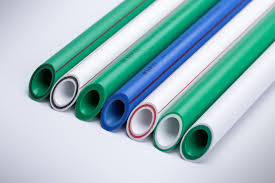Aug . 21, 2024 09:06 Back to list
High-Density Polyethylene Pipe Solutions for Durable Water and Fluid Transport Systems
Understanding HDPE Pipes and Their Applications
High-Density Polyethylene (HDPE) pipes have gained significant momentum in various industries due to their exceptional properties and versatility. HDPE is a type of thermoplastic made from petroleum, characterized by its high strength-to-density ratio. The unique properties of HDPE make it an ideal choice for applications in water distribution, irrigation, sewage systems, and industrial piping.
One of the foremost benefits of HDPE pipes is their durability. Unlike traditional materials, such as metal or PVC, HDPE pipes are resistant to corrosion, which enhances their lifespan significantly. This corrosion resistance makes them suitable for a wide range of environments, including coastal areas where saltwater can quickly degrade other materials. Additionally, HDPE pipes exhibit excellent resistance to chemical degradation, making them a preferred choice for transporting chemicals and wastewater.
Understanding HDPE Pipes and Their Applications
The lightweight nature of HDPE pipes is another significant benefit. They are easy to handle and transport, allowing for more efficient installation processes. This characteristic is particularly useful in remote or challenging locations where heavy machinery may not be accessible. Despite their lightweight construction, HDPE pipes are strong and can endure significant pressure, allowing them to be used in high-pressure applications such as drinking water supply and irrigation systems.
hdpe pipes product

One of the most impressive features of HDPE piping is its environmental sustainability. HDPE is fully recyclable, meaning that end-of-life pipes can be repurposed to produce new products, reducing waste in landfills. Additionally, the production of HDPE pipes requires less energy compared to traditional materials, contributing to a lower overall carbon footprint. As industries and municipalities seek more sustainable solutions, HDPE pipes present an attractive option.
In terms of applications, HDPE pipes are widely utilized across various sectors. In municipal water systems, they are often used for drinking water distribution due to their non-toxic nature and ability to maintain water quality. In agricultural settings, HDPE pipes are commonly used for drip irrigation systems, helping to efficiently deliver water directly to the roots of plants, conserving water resources and improving yield.
Moreover, HDPE pipes play a vital role in the sewage and drainage systems. Their ability to resist blockages and withstand harsh conditions makes them ideal for transporting wastewater. In industrial applications, HDPE pipes are employed in processing plants, chemical plants, and mining operations, where robust and reliable piping is crucial.
In conclusion, HDPE pipes are a vital component in modern infrastructure due to their outstanding durability, flexibility, and environmental sustainability. As industries continue to innovate and seek efficient solutions, HDPE pipes will likely remain at the forefront of piping technology, catering to an array of applications and helping to meet the growing demands for reliable and sustainable infrastructure solutions. With their wide-ranging benefits, investment in HDPE piping systems represents not just a practical choice but also a commitment to sustainability and innovation in construction and engineering.
-
DN100 PVC Well Casing Pipes | Durable Corrosion-Proof
NewsAug.04,2025
-
HORON 25mm PPR Plumbing Pipes - AI-Enhanced & Reliable
NewsAug.03,2025
-
HORON 25mm PPR Pipes - AI-Optimized Plumbing Excellence
NewsAug.02,2025
-
Premier HDPE Sprinkler Pipe Manufacturers | Durable Solutions
NewsAug.01,2025
-
DN500 HDPE Double Wall Corrugated Drain Pipes | Durable & Efficient
NewsJul.31,2025
-
1/2' PVC Electric Protective Pipe - Durable, Lightweight Conduit
NewsJul.31,2025

